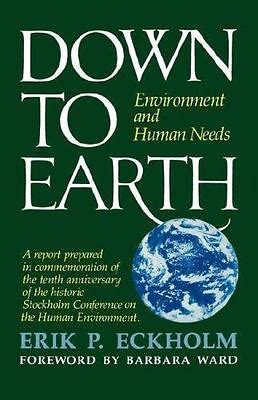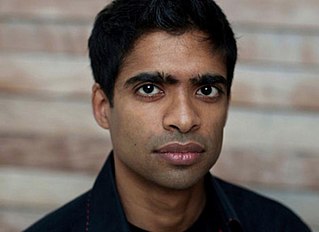A Quote by Murray Bookchin
If we recognise that every ecosystem can also be viewed as a food web, we can think of it as a circular, interlacing nexus of plant animal relationships (rather than a stratified pyramid with man at the apex)… Each species, be it a form of bacteria or deer, is knitted together in a network of interdependence, however indirect the links may be.
Related Quotes
One animal or plant species may become extinct every hour. All species are doomed to extinction, but man through worldwide development/killing animals for food/profit/using toxic chemicals such as pesticides/industrial wastes, will accelerate the extinction of plants/animals and the result will be a more hostile environment for man.
Man is merely a frequent effect, a monstrosity is a rare one, but both are equally natural, equally inevitable, equally part of the universal and general order. And what is strange about that? All creatures are involved in the life of all others, consequently every species... all nature is in a perpetual state of flux. Every animal is more or less a human being, every mineral more or less a plant, every plant more or less an animal... There is nothing clearly defined in nature.
Ecology also teaches that all life on earth can be viewed as a competition among species for the solar energy captured by green plants and stored in the form of complex carbon molecules. A food chain is a system for passing those calories on to species that lack the pant's unique ability to synthesize them from sunlight.
There is part of a structure in which every species is related to every other species. And they're built up on species, like a pyramid. The simpler cell organisms, and then the more complicated ones, all the way up to the mammals and birds and so forth. We call it 'developing upward'... The whole thing depends on every part of it. And we're taking out the stones from the pyramid.
It must be stressed that there is nothing insulting about looking at people as animals. We are animals, after all. Homo sapiens is a species of primate, a biological phenomenon dominated by biological rules, like any other species. Human nature is no more than one particular kind of animal nature. Agreed, the human species is an extraordinary animal; but all other species are also extraordinary animals, each in their own way, and the scientific man-watcher can bring many fresh insights to the study of human affairs if he can retain this basic attitude of evolutionary humility.
Lots of people think, well, we're humans; we're the most intelligent and accomplished species; we're in charge. Bacteria may have a different outlook: more bacteria live and work in one linear centimeter of your lower colon than all the humans who have ever lived. That's what's going on in your digestive tract right now. Are we in charge, or are we simply hosts for bacteria? It all depends on your outlook.
Several times in Earth's history, rapid global warming occurred, apparently spurred by amplifying feedbacks. In each case, more than half of plant and animal species became extinct. New species came into being over tens and hundreds of thousands of years. But these are time scales and generations that we cannot imagine.
A diverse ecosystem will also be resilient, because it contains many species with overlapping ecological functions that can partially replace one another. When a particular species is destroyed by a severe disturbance so that a link in the network is broken, a diverse community will be able to survive and reorganize itself... In other words, the more complex the network is, the more complex its pattern of interconnections, the more resilient it will be.
You like the Earth, Man, and you - pawing the ground - think of God, the little nursling will recognize you, and will think of you with love, because God lives even in it also. Give nourishment to the developing little creatures, either to plant or to animal, and it will develop for your sweet amazement. Give food for the wild animal starving, and it will slick to you.
As humans, we do get to choose what we eat, and when we choose to eat a plant, we are eating (i.e., harming) just that plant, plus indirectly whatever nutrients that plant consumed over its lifetime (and we are also harming whatever beings may have been living on that plant or who were injured or killed in the harvesting process). But when we eat an animal, we are eating not just that animal, but also indirectly all of the plants and other beings that that animal ate over its lifetime - those plants became the flesh that we eat.

































